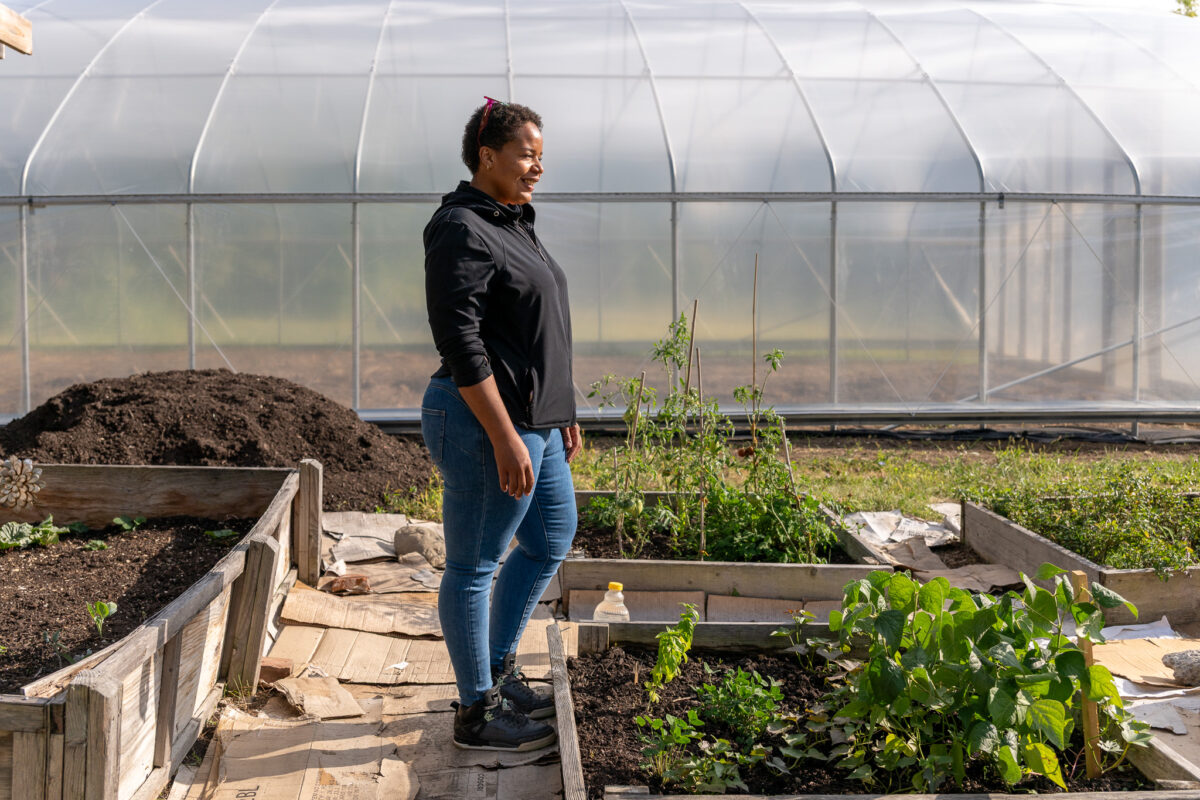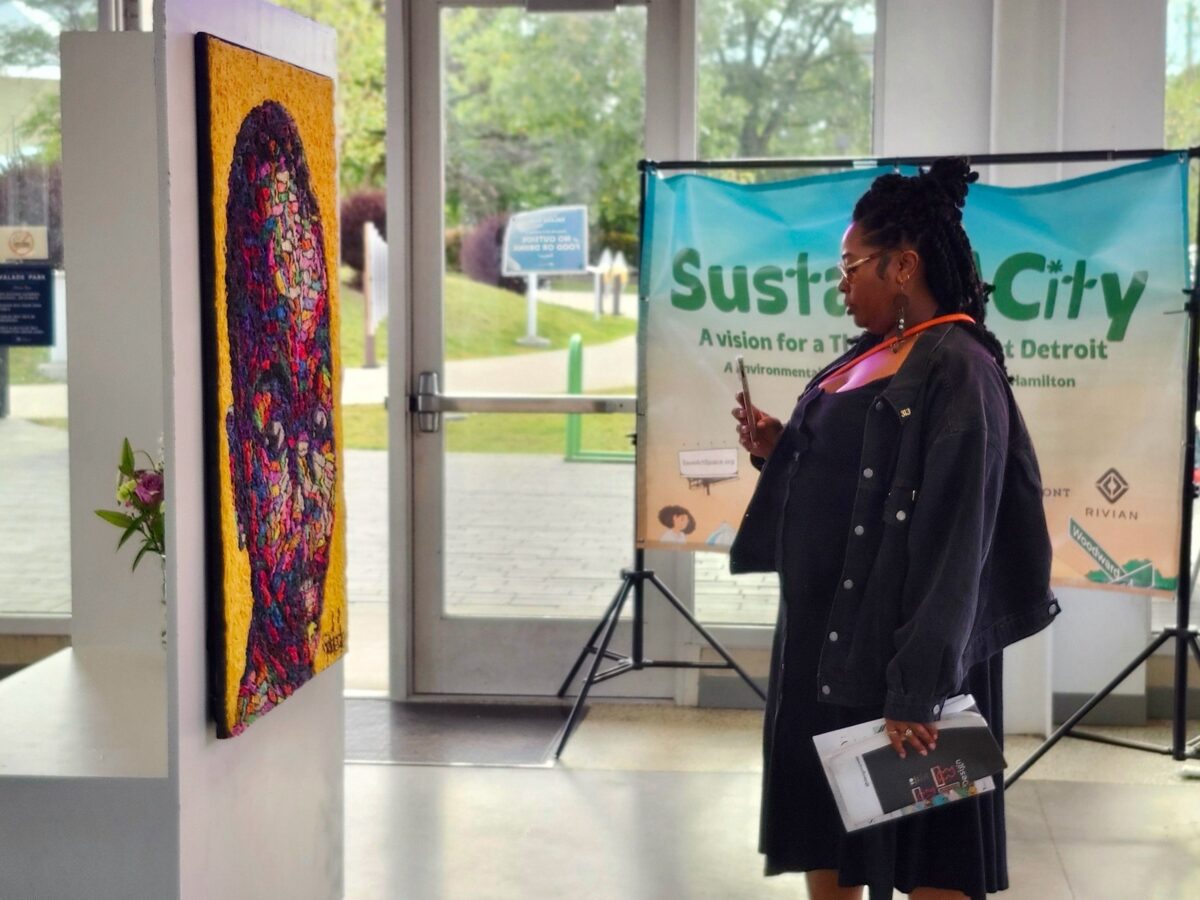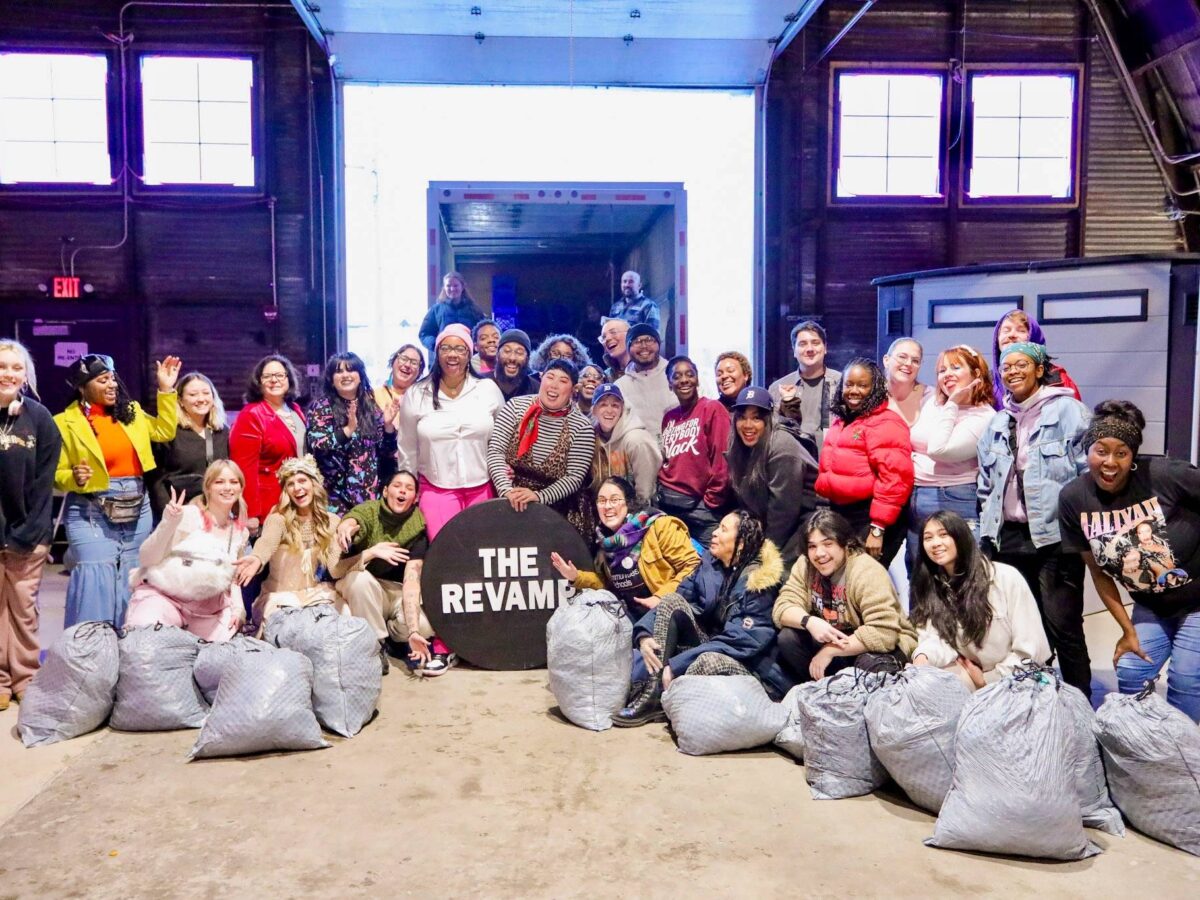Overview:
- The hoop house at Detroit's Home Ec Garden was constructed in August by The Build Crew, a seven-person team from Keep Growing Detroit.
- “The hoop house allows us to collect more rainwater. I can set up drip irrigation, and the solar pump will allow me to put it on a timer,” says Lynelle Herndon, the farm's founder.
- The improvements at the urban farm on the city's west side were made possible by a USDA-funded grant.
Lynelle Herndon receives a lot of help to keep her farm, Home Ec Garden, watered.
Friends, neighbors, and her children have all hauled buckets for hand-watering. The fire department pitched in, filling her water tanks one dry summer. Keep Growing Detroit provided an irrigation system to catch rainwater, but it’s still not enough.
“Sometimes it doesn’t rain, sometimes the tanks get empty,” Herndon said.
Access to water is a barrier to growth for many gardens in Detroit that are often located on formerly residential lots. When a house is demolished, the city disconnects utilities, including municipal water.
Reestablishing a water connection can be costly. In addition to the expense of hiring a Detroit Water and Sewerage Department engineer to locate the water main shut-off valve, going on the grid increases a farmer’s overhead, making them responsible for a hefty water bill.
“The challenge of growing out here in these conditions without water is a lot,” said Herndon.
Some smaller growers can plant near their homes and simply run a hose from the house to the plants. But for larger farmers like Herndon, one of the first awardees of the Detroit Black Farmer Land Fund, which provides funding for land purchases to farm on plots that are not adjacent to their homes, this is not an option.
Herndon recalls her first season, when she would fill buckets with water at home and transport them by car to irrigate her plants. Hauling water was a hassle, so she was conservative with watering, and as a result, her plants grew too small.
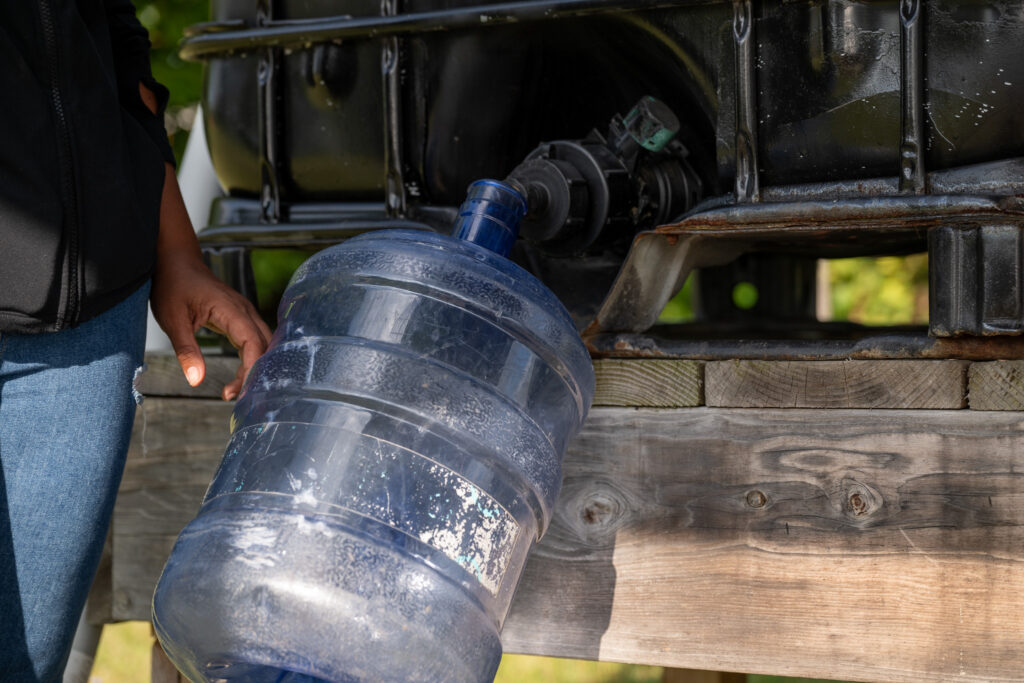
Then, in November 2021, Keep Growing Detroit selected Home Ec Garden as the site for a rain catchment system, a wooden pavilion featuring a slanted roof and gutters that attach to tanks capable of storing 275 gallons of rainwater. Her garden flourished with water from the catchment system. And having water stored in tanks on location was easier than hauling water in her car.
The system is not perfect. During her second growing season, a lack of rainfall meant Herndon needed a fill-up from the fire department, and moving water from the tanks to her plants still required her to do it by hand.
Herndon applied for an Environmental Quality Incentives Program grant through the United States Department of Agriculture in 2024. The program works with farmers to incorporate sound environmental practices on land under cultivation.
The grant is the Michigan Water Source Pilot for Urban Farmers, which funds projects aimed at increasing rainwater collection and promoting efficient irrigation. Herndon was awarded funding for a hoop house, gutters, a 1,000-gallon tank to catch and store rainwater, and a solar pump to automate her irrigation.
MORE FROM THE NEIGHBORHOOD REPORTING LAB
Chi Fan Le brings authentic Chinese cuisine to Detroit’s pop-up scene
Angela Chi’s Chi Fan Le pop-up, launched in 2022, brings homestyle Chinese dishes to Detroit, blends cultural heritage with sustainability and community-driven values.
Sustain-A-City: Detroit reimagines sustainability through art
Detroit’s creative spirit intersects with environmental advocacy for “Sustain-A-City: A Vision for a Thriving, Resilient Detroit.” The art is showcased on billboards through Sept. 14.
Detroit’s ReVamp clothing swap makes the world more sustainable, 1 party at a time
Amanda Sweet leads The ReVamp, a clothing swap collective that empowers communities by promoting sustainability and fostering connections, diverting textile waste and offering a creative space for social engagement.
‘How can we get water?’
Farmers in Michigan and across the Midwest are turning to hoop houses as a low-cost way to extend the growing season and protect crops. The structures allow growers to plant earlier in the spring and continue harvesting well into the fall. In states where frost and heavy snow can cut the season short, hoop houses give small-scale farmers a crucial edge.
Travis Peters, the owner of Green Boots Veteran Community Horticulture Gardens on Detroit’s west side, played a crucial role in securing funding for Detroit farmers.
He traveled to Washington to advocate for the needs of urban growers and developed a relationship with U.S. Sen. Debbie Stabenow, then chair of the Senate Agriculture Committee, which led to a $2 million investment from the USDA to finance the Michigan Water Source Pilot for Urban Farmers.
“Every opportunity I had to get in front of someone in power, I made sure that the verbiage and the understanding was about the necessity for water,” Peters said.
“My questions were, ‘how can we get water? They won’t let us build wells. We can’t just get a plumber to tap in. What do we do? How do we do it? Is there funding for water?’ That was my ask.”
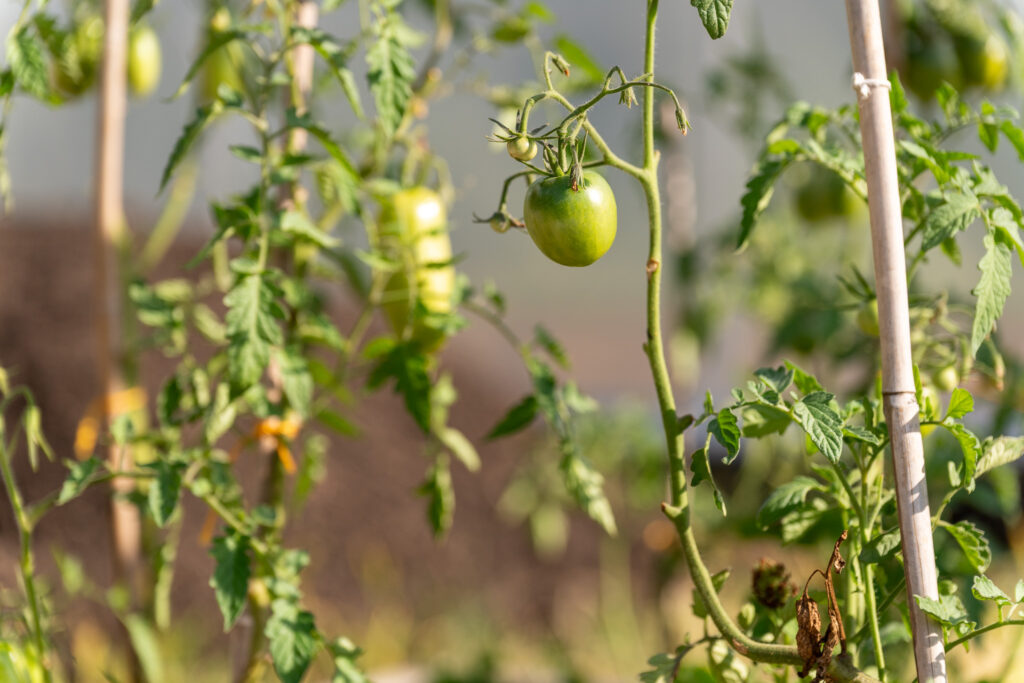
Herndon learned about the grant from Peters and applied. After a site assessment, she learned she’d been awarded the grant.
The hoop house at Home Ec Garden was constructed in August by The Build Crew, a seven-person team from Keep Growing Detroit, which was contracted to erect the 30-foot by 72-foot steel frame. It took five days to complete. The structure will retain warmth for plants during Michigan’s cold months.
“The hoop house allows us to collect more rainwater. I can set up drip irrigation, and the solar pump will allow me to put it on a timer,” Herndon said. “The plants will be watered fully and consistently, which will allow them to grow bigger and better and not struggle and suffer like they have been.”
Herndon is looking forward to a hoop house warming party for neighbors in the fall. She hopes to create a path from a senior center that backs up to the farm, encouraging residents to walk over and spend time in nature.
Right now, Herndon grows tomatoes, green beans, sweet potatoes, basil, and some mint. She plans on more greens and snap peas in the fall, and she’s looking forward to growing okra in the future.
In the long term, Herndon envisions a healthy, sustainable, and interdependent living environment for Detroit’s children and households.
“The goal,” Herndon said, “is opportunities for access to health and healing for myself and my community.”

